Search
Search Results
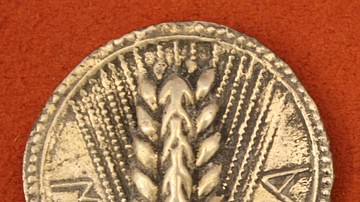
Collection
Trade & Commerce in Ancient Greece
The ancient Mediterranean was a busy place with trading ships sailing in all directions to connect cities and cultures. The Greeks were so keen on the rewards of trade and commerce that they colonized large parts of the coastal Mediterranean...
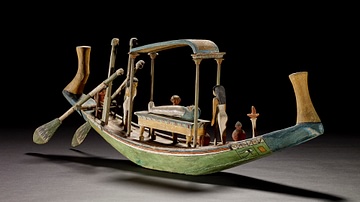
Image Gallery
Ships in the Ancient Mediterranean
The Egyptians, Phoenicians, Greeks and Romans all prospered in the ancient Mediterranean thanks to their mastery of the sea which allowed them to fish, trade, win naval battles and establish new cities far from their own coastal waters. In...
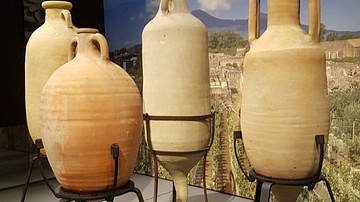
Article
North Africa’s Place in the Mediterranean Economy of Late Antiquity
The Mediterranean Sea was the economic focal point of the Roman Empire. Rome's armies first established an empire across these waters beginning back in the times of the Roman Republic. In 200 CE, the Mediterranean was still the channel that...
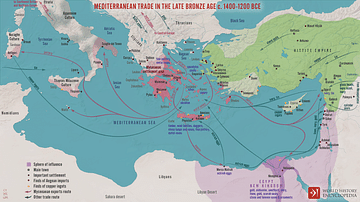
Image
Mediterranean Trade in the Late Bronze Age c. 1400-1200 BCE
A map illustrating the late Bronze Age trade in the eastern Mediterranean seaboard as a region of increasing connectivity between the key players Pharaonic Egypt in the south, the Hittite Empire, Mesopotamia, and the Levant to the east, and...
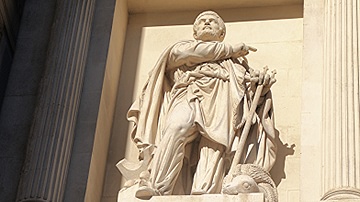
Article
On the Ocean: The Famous Voyage of Pytheas
Sometime around 330 BCE, Pytheas, a little-known Greek merchant, embarked on an astonishing voyage. It was a voyage that would take him far beyond the known boundaries of the Mediterranean, into lands thought to exist only in myth and legend...
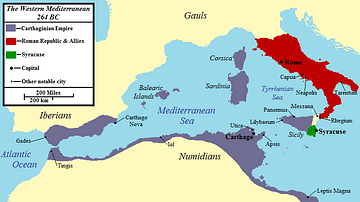
Image
The Western Mediterranean 264 BCE
Map of the western Mediterranean at the time of the First Punic War in 264 BCE.
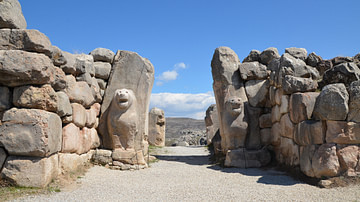
Interview
Interview: The Mysterious Bronze Age Collapse with Eric Cline
The decline of the Late Bronze Age civilizations of the Mediterranean and Near East has puzzled historians and archaeologists for centuries. While many have ascribed the collapse of several civilizations to the enigmatic Sea Peoples, Professor...
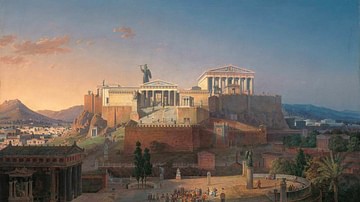
Article
The Rise of Cities in the Ancient Mediterranean
The history of the ancient world has always been told as a history of cities, from Homer's epic poems about events just before and just after the sack of Troy, through the prose histories of wars between Athens and Sparta, Rome and Carthage...
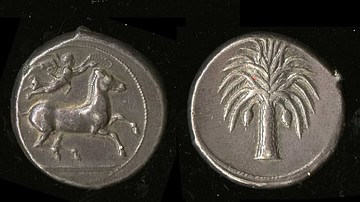
Article
Carthaginian Trade
The Carthaginians, like their Phoenician forefathers, were highly successful traders who sailed the Mediterranean with their goods, and such was their success that Carthage became the richest city in the ancient world. Metals, foodstuffs...
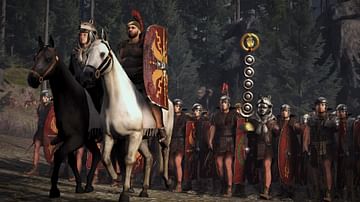
Article
Officers of the Roman Army
With the appearance of the legionary, the Roman army was able to maintain a vast empire that totally embraced the Mediterranean Sea. Although the success of the army rested on the backs of the foot-soldiers and cavalry, there were others...